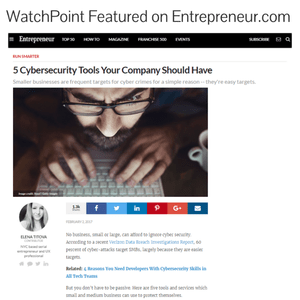With Facebook being the most widely used social media network with over 1.7 billion active monthly users, you can be assured that it is one of the biggest targets for cyber criminals. 

Whether you log in to Facebook on your phone, tablet, home PC, or a public computer at the library, there are crucial things you should do to protect your personal information. Here are some critical steps to take to ensure your confidential information stays private and secure.
1) Choose A Strong and Unique Password
It is best practice to use a different password for each online site you visit, especially sites that protect personal information such as online banking, credit cards, and Facebook. While this can certainly be a nuisance, it can save you greatly in the event of having a password stolen. If you use the same password for all sites, if stolen a criminal has access to all of your accounts.
My suggestion would be to use a random password generator. These can be found
all over the net. There is passwordsgenerator.net, random.org, strongpasswordgenerator.com, and my personal favorite
LastPass. I like LastPass as it will not only generate complex 20 character passwords, encrypted locally and synchronized to any other browser, but It saves your passwords for you.
To change your password, go to Account Settings > General > Password. I suggest using a combination of symbols, lower case and capital letters, and numbers. No common names or phrases.
2) Activate Secure Browsing
Activating secure browsing will limit the external applications with in Facebook the ability to take your personal information without your approval.
To do this go to Account Settings > Security > Secure Browsing > Edit > Select the box "Browse Facebook on a secure connection" then click save.
3) Activate Login Approvals
Hey, while you are on that security settings page activating secure browsing, go down two rows to Login Approvals. Click edit. A pop-up window appears, "Require me to enter a security code each time an unrecognized computer or device tries to access my account”
Select that box and save changes.
Facebook will now send you a text to your cell phone if someone tries to log into your account from an unrecognized device.
4) Enter your phone number on Facebook.
This one can be difficult to convince people to do. Obviously, tip #3 is only going to be of use if you have confirmed your number with Facebook. Some don't want to share their number with people on Facebook and don't realize you can select not to share that information publically, but you can.
Confirming your number with Facebook is a good idea in case you forget your password, Facebook can send you a text with a new one as well as protecting your login credentials mentioned in the previous tip.
To add your mobile number, go to Account Settings > Mobile and click on Add a Phone.
5) Decline the Option to 'Keep Me Logged In.'
Not only should you log out of every session on Facebook, as well as every other site you use a password for, but you also should not check the 'Keep me logged in' option underneath the e-mail/password prompt.
Yes, this will take up extra seconds entering that e-mail and password every time you log in, but if that device is stolen or compromised if a session wasn’t ended properly and another user logs in, your information is wide open. 

Not only should you follow these steps, but be careful how much you share on Facebook. Every piece of information you put on social media could be an open invitation for someone to steal not only
your information but personal possessions as well.
Did you mention your mother's maiden name, your first pet, the street you grew up on, your favorite color, etc. on your most recent update? You have just given everyone the answers to your security questions.
Do you like to take cool photos of all of your new home electronics and appliances? How about your car? Do you then check-in everywhere you go? Do you accept friend requests from complete strangers? You are telling everyone what you own, where you keep it, when you are not home and then inviting people you hardly know into your life.
Be careful on social media. Not only should you keep your private information secure, but you should keep many of the things you do in your private life secure as well. Share away, but it does not always need to be in the moment. Those cool pics of the concert can wait until tomorrow, after the fact.

